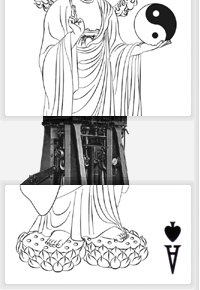Mr. Leung (Man Tao) has missed no time to produce a reply to an article lately published by Mr. Leung (Kai Chi) in the pages of Mingpao. The reply aims at one central question - prominetly presented in the title - and tries to answer it most favorably for the mobilizers, drawing support, to that end, from a few historical instances including even German National Socialism's alleged Baverian roots. The reply reads as follows, on which I should like to make several observations subsequently.
Sept. 27, 2007. HK Mingpao
本土一定是保守的嗎?
回想97,曾有一波香港熱,市面湧現了大量以香港為題材的書籍、藝術品甚至電視劇,但這股熱潮轉眼即逝,接連沉寂了好幾年。直到2003年,從「香港核心價值」的討論,SARS疫潮和第一屆7.1大遊行開始,香港才又重新成為大家關注的主題。尤其是最近兩年,圍繞天星碼頭、皇后碼頭與灣仔利東街的討論更把這第二輪的香港熱推向了高峰。表面看來,這兩次香港熱似乎很相似,都在大眾媒體間引起了一股懷舊訪古的情緒;可是再仔細深究,就會發現它們其實有很不一樣的內涵。其中一個關鍵的差異就是最近一輪的香港熱不只是場虛談,而且還是一連串的行動,這些行動更指向了香港定義的爭議﹕香港真的只有「中環價值」嗎?香港是否容不下自生自發的社區?誰又有權去書寫香港的歷史與集體記憶呢?
面對這樣的趨勢,有些害怕既得利益受到衝擊的人就要擔心以往的慣性路徑是否走不下去了,也有些知識分子懷疑新世代的香港定義不一定要比老的那一套更進步。
香港大學地理系的梁啟智先生在〈「定義香港」的危險〉(《明報》2007.9.24)一文所表達的,就是後面那一種疑慮。他以每逢中日足球賽就要群起喝倒采的內地憤青為例,說明「本土認同不一定是件值得慶賀的事」。他引述英國地理學家梅西(Doreen Massey)的說法,指出「如果一個地方的自我認同是建基於對環境改變的反作用力,依靠某些(想像中)的內在歷史而確立的話,這個認同是內向的,而不可能是進步的」。
誠然,本土認同和由此而來的本土主義實在不一定是件好事。上個世紀70年代開始爆發的英國社區運動曾經被認為是場非常進步的運動,許多鄉鎮以建立社區博物館和保存古蹟文物的手段確立社區的本土認同,質疑現代化的發展力量,抗拒現代商業運作模式的入侵。可是這些日趨強烈的本土運動卻演變出一個又一個的封閉社團,拒絕一切改變,不只拒絕了大財團和政府的干擾,甚至也排斥了所有不見容於傳統價值的思潮、行為和族群,例如女性主義、同性愛以及外國移民。本土之狹,於此可見一斑。
從學理上講,本土認同的主張也備受後現代主義和後殖民研究的批評。從這種角度來看,沒有一種身分是純粹的,任何一種關於地方、歷史及傳統的本質定義都是可疑甚至危險的。它有多危險?我們看看納綷就知道了,堅守來自德國南部的鄉土信念和一套純粹人種的學說,就會導致極端的暴政和對異己的屠戮。反過來,就算是被壓迫的人民也好不了多少。比如猶太復國主義者,由於長年活在被壓抑的結構之中,習慣了本質性的思考框架,一旦當道,他們也會複製敵人用來對付自己的模式,建立了以血統為主要標識的民族國家,打壓非我族類的巴勒斯坦人。
回到香港,我們現在的問題是最近這一波重新定義香港的潮流,以及隨之崛起的香港本土主義,會不會也陷入上述的危機呢?
首先,我們必須承認香港這座城市雖曰開放,實則有它封閉排外的一面。梁啟智先生提及的梅西教授曾經批評一些反對大型商場私有化了公共空間的人太過浪漫,忽略了所謂的公共空間其實也一直處於不斷的鬥爭之中,絕非大家平常所想的那麼中性。證之於香港,可以大會堂及愛丁堡廣場一帶為例。這片地方每逢假日,皆為菲籍女傭聚集取樂之處。結果就讓一些香港人很看不順眼了,到了一個地步,甚至有前市政局議員公然提議禁止菲傭使用大會堂的公共廁所。另一個更顯眼的例子,則是回歸以後的「居港權事件」,這件事完全暴露了港人過去20年來形成的「香港意識」之淺陋可怕。多年以來港人對內地同胞的偏見歧視,與那過度膨脹的自我感覺,徹底體現在
當時一片「香港陸沉」的恐慌當中。如此看來,梁先生的憂慮似乎不無道理了。
不過,當我們再深入一點閱讀梁啟智先生的文章,卻又看不出他有任何具體的證據和推理去得出眼前的本土主義很危險的結論;相反地,他只是依循主流後現代/後殖民批評的慣性理路,單純地抗拒「任何本質化的定義」罷了。他認為﹕「香港主流的土地開發主義固然是霸道,卻不見得現時挑戰它的本土論述就更為開放。一篇又一篇的抗爭文宣告訴我們,露天市場必然地更有人情味,舊區小店才是『真正的香港』。文化界的朋友高呼舊區的消失等於香港被『消滅』,任何的商場都及不上街道的『港式風格』。這些說法雖然感人肺腑,邏輯上卻和《心繫家國》訴說毛筆書法就等於中華文化一樣,同樣是依靠缺乏驗證和以偏概全的例子,來激發公眾對某些地方的情
感。」
類似的說法,早在十多二十年前就曾被人用在南美洲及澳洲的原住民身上了。那些原住民不只重新發掘湮沒已久的傳說與神話,甚至不惜創造一批子虛烏有的傳統儀式,好證明自己的族人和雨林及大地有密不可分的神聖聯繫,定義自己族群的獨特。在相信所有社群都是被人想像出來的學者眼中,這種種神話傳統自然也是一堆本質化的定義嘗試,甚且犯了「自我東方化」的錯誤;白人就是覺得你們很另類很有異國風情,你們偏偏還要把自己的身子抹得又紅又綠,頭戴羽冠,赤足跳舞。假如美國清教徒把自己定義為擔負了解救萬民之重任的「新以色列人」是種危險的偉大符號,那麼這些原住民自命為眾神後裔難道不也是危險的偉大符號嗎?
對於這種曾經流行一時的說法,美國人類學家阿里夫。德里克(Arif Dirlik)老早就毫不客氣地斥之為「無聊且無情」。他敏銳地指出﹕「本土主義對身分的要求很大程度上是與對生存的迫切關注聯繫在一起的;它不是停留在比喻意義上的,而是非常有形的。美國印第安人的土地,或者說其中剩下的部分,不僅僅是對已逝去的殖民歷史的一種提醒,而且仍然是國家和社團想摧的目標。」抽空地說(或者用梁先生的用語,「邏輯上」),這些原住民的神話式本土主義和大國霸權式的民族主義的確有類近的構造;可是作為一套論述,它們的目的或者計劃卻是完全不同的。南美原住民虛構傳統,是為了捍衛那被石油公司逐步侵蝕的雨林棲地;澳洲原住民鼓吹本土主義,則是為了奪回被白人政權壓抑了幾個世紀的權益。如果一個身居廟堂的學者這時跑去提醒他們不要犯了「本質主義的錯誤」,隨時得保持「身分邊界的開放」;就算不是無情,至少也是無聊吧。
同樣地,新一輪的香港本土主義對很多人而言,也是與生存攸關的鬥爭利器。就拿近年灣仔和深水重建區街坊的抗爭來說吧,他們之所以強調香港老街道的人情和舊小店的風味,固然是他們自己體驗感受的表達,更是為了維護自己的生路。而「任何的商場都及不上街道的『港式風格』」之所以不同於「《心繫家國》訴說毛筆書法就等於中華文化」,就在於不少街道仍然容得下自力更生的小經營者,所謂「港式風格」就是論者維續小商販市場棲位的一種符號表述。梁啟智先生說得很對,香港主流的土地開發主義是很霸道的,因此挑戰它的本土論述才更需要勾連起一串容易為人領會為人接受的意像與符號。我們都恐懼過度發展的本土論述會變得封閉排他,及早提醒也是應該的,只不過任何批評都應該歷史地、辯證地落實在具體的時空之中,同時要舉出通向錯誤終局的具體步驟以為警示;否則一個社區眼看就要淪亡消逝了,你卻勸告他們將來不能排斥新移民,不要抗拒外來事物,這豈不是很沒意義的一件事嗎?
齊澤克(Slavoj Zizek)調侃一些「激進知識分子」的「犬儒」,哈伯馬斯(Jrgen Habermas)(儘管有失公正地)斥責法國後結構主義者是一幫「新保守派」,理由就是那種只從邏輯上消解一切的推理,看起來很激進價值上其實很虛無,輕則無利亦無害,重則成了當權者的幫兇。不知梁啟智先生有沒有注意到,市建局重建利東街的理由之一正是要把這條街區「開放」給市民。我當然不會誤以為梁先生是犬儒的新保守派,只是同為關注城市發展的有心人,大家應該切磋共勉。
梁文道 牛棚書院院長
I can, as a matter of fact, answer the title question most directly: No, Local need not be Conservative - just as Mr. Leung (Kai Chi) most directly, and also most correctly, answered the opposite question: Well, Local need not be Progressive either. If the two Mr. Leung purposed but to put forth this sort of negation of necessity, readers would be warranted to turn the page without further ado. But Mr. Leung (Man Tao) certainly meant to write an answer, and one deserving a hearing, because he found in the article by Mr. Leung (Kai Chi) more than a little disturbing. Mr. Leung urged, not only that Local need not be Conservative, but in fact that a certain kind of Local is (necessarily) Progressive, namely, the kind that appeals to the mobilizers.
This is most clearly seen, if one compares Mr. Leung (Kai Chi)'s lingering worry that any attempt at "defining" HK would easily be hegemonic, with Mr. Leung (Man Tao)'s leading question (in his own words) "誰又有權去書寫香港的歷史與集體記憶呢?" For the latter Mr. Leung, someone - some group of persons - must have a better claim to this right or privilege of writing - i.e. defining - HK. It can't be all hegemonic, to put it simply, and so even if the picture put up by the said group of persons might be partial, limited, distortive of the experience of many people in HK, it still should have the better claim.
At bottom, Mr. Leung (Man Tao) is committed to such a view: It is the little guys who have the right to write HK. So, seeing that the mobilizers' localism is based, according to this Mr. Leung's reading, firmly upon the belief that old communities - of little guys - ought to be saved, it is an easy conclusion to draw, that the mobilizers, on behalf of these little guys, ought to have the better right to write HK. So we read:
"新一輪的香港本土主義對很多人而言,也是與生存攸關的鬥爭利器。就拿近年灣仔和深水重建區街坊的抗爭來說吧,他們之所以強調香港老街道的人情和舊小店的風味,固然是他們自己體驗感受的表達,更是為了維護自己的生路。而「任何的商場都及不上街道的『港式風格』」之所以不同於「《心繫家國》訴說毛筆書法就等於中華文化」,就在於不少街道仍然容得下自力更生的小經營者,所謂「港式風格」就是論者維續小商販市場棲位的一種符號表述。"
It is, on this view, very unacceptable therefore, that the other Mr. Leung mounted a critique of essentialism regarding the mobilizers' discourse. "一個社區眼看就要淪亡消逝了,你卻勸告他們將來不能排斥新移民,不要抗拒外來事物,這豈不是很沒意義的一件事嗎?" Worse still: because the "caution" came from "一個身居廟堂的學者." Mr. Leung (Man Tao)'s challenge is not without force; I for one believe that it is pointedly relevant, not only to contemporary academic debates, much informed by Theory, but also, and particularly, to those mobilizers wont to follow the academicians rather dutifully in thought and deed. But here the crux is not essentialism, nor the critique of it; but the ground on which Mr. Leung (Man Tao) thought that the mobilizers, representing (virtually or actually) the little guys and dying communities, must have the better right to write HK. It is this, I believe, that led Mr. Leung (Kai Chi) to conclude that there was something deeply problematic in the mobilizers' case.
Perhaps many HK people believe honestly that Development and Preservation ought to be balanced; that some communities ought to give way to developmental needs; that, while the ambience, the life-style, the social world offered by those communities are no doubt valuable, it is attractive nonetheless to have a mall nearby, it being capable of developing into something equally lively and humane. For Mr. Leung (Kai Chi), these beliefs deserve a hearing; and on the merits they are not straightway untenable before their opponents. Mr. Leung (Man Tao) did not see it this way, but held strongly to the conviction, that these "developmentalistic" beliefs must go. They gone, the mobilizers should naturally be confirmed of their better right to write HK - and their version of Local must needs be Progressive.
So at the end it is not a matter of Zizek and Habermas (whether "有失公正地" or not) joining forces against Foucault and Derrida, but a matter of how to describe the mobilizers' claim to a better right, the right to write HK in a way that would appear "hegemonic" to some other - not necessarily regressive - party. This issue Mr. Leung (Man Tao), in his passionate reply to the other Mr. Leung, largely neglected; he dwelt instead on a number of other things, which the latter Mr. Leung would comfortably endorse. Mr. Leung (Kai Chi) tentatively accepted my characterization of his endeavor as to find a "third way," a way that would encourage participation without engendering hegemony. Mr. Leung (Man Tao) would, on the other hand, see no problem of hegemony here; for the attempt to "resist the developmentalist hegemony" must, of course, not be hegemonic; or indeed be hegemonic, but of the "right" kind.
Once Mr. Leung (Man Tao) accepted unreservedly that the little guys and dying communities had the better right to write HK, Mr. Leung (Kai Chi) could not but be taken a post-modernist dilettante: they must speak on different registers, for having different allegiances. I in my former reply did question Mr. Leung (Kai Chi) for his pursuit of heterogeneity and aversion to finality; which might sound a little like Mr. Leung (Man Tao)'s rejoinder. But it is not. For in that questioning I did not proceed from the presumption that the little guys and dying communities must (always) have the better right to write HK. This wise, I must part ways with Mr. Leung (Man Tao). Hence this little Note.
A Note on "本土一定是保守的嗎?"
標籤:
Y.T.
訂閱:
發佈留言 (Atom)



0 留言:
發佈留言